If a database decomposition is not dependency preserving, is it safe to conclude that the decomposition is lossy as well without further proof?
To clarify - when I use decomposition in my question, I am referring to the act of breaking down a relation into smaller relations when trying to normalise a relation. E.g. decomposing a 1NF relation into a series of 2NF relations.
As outlined by this Quora post, a decomposition should be "lossless" and "preserve dependencies". I understand that a decomposition that preserves dependencies may not be lossless and vice versa; however, are there situations where a decomposition that doesn't preserve dependencies is not lossy?
A more formal definition of database decomposition can be outlined in "Database Systems: The Complete Book" (refer to below excerpt)
